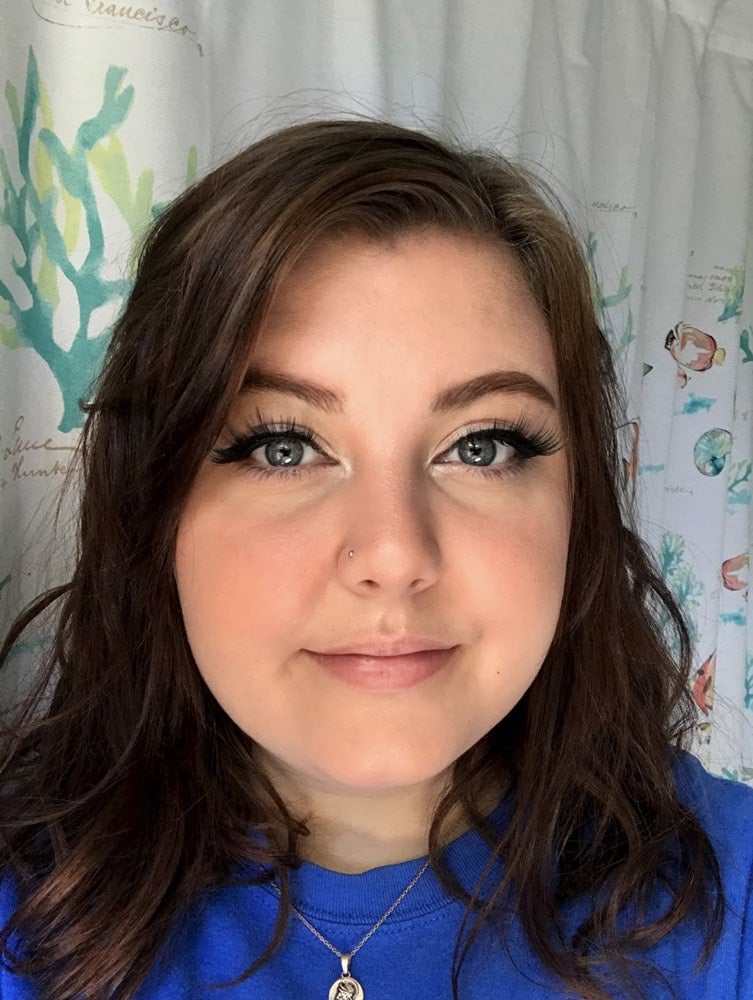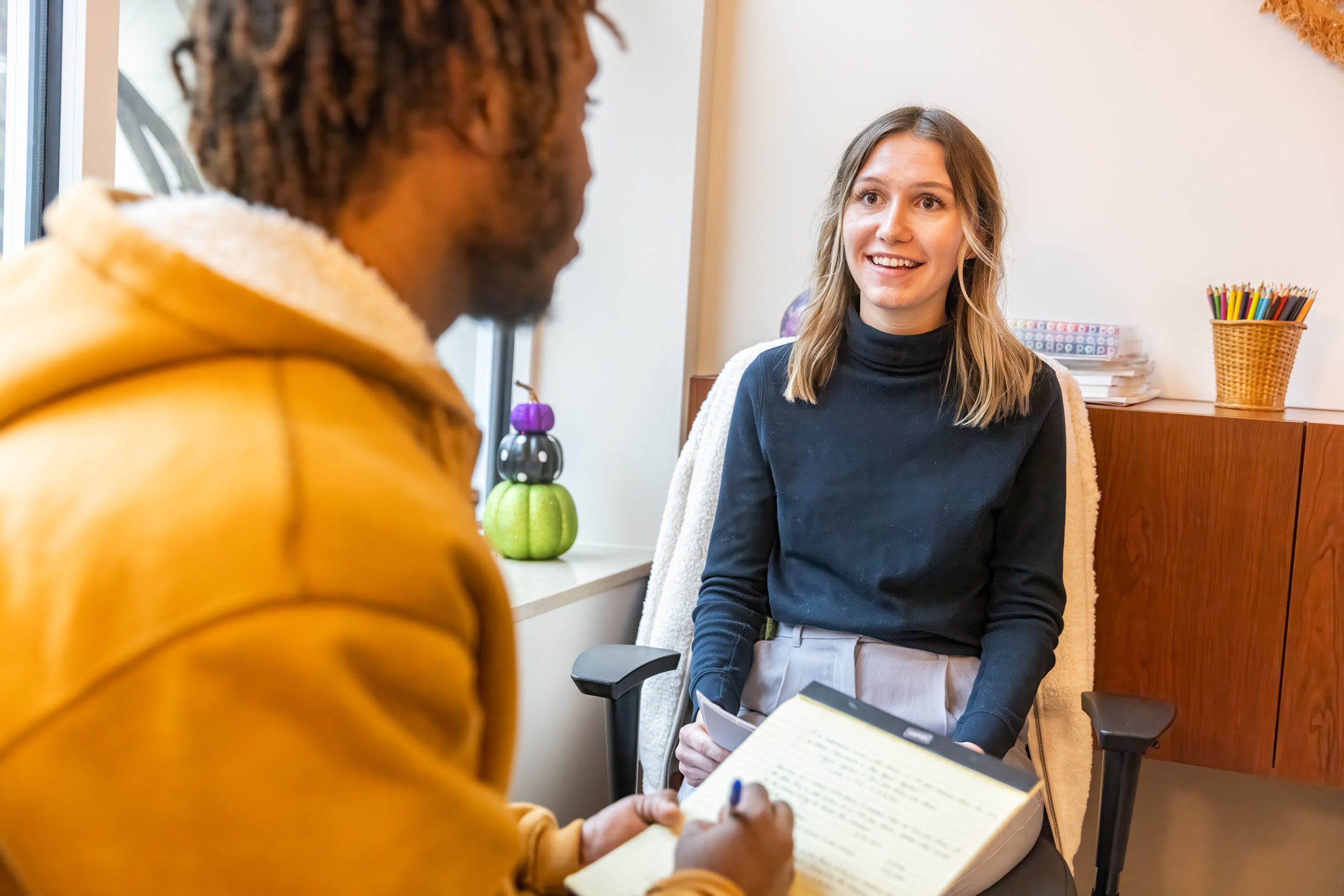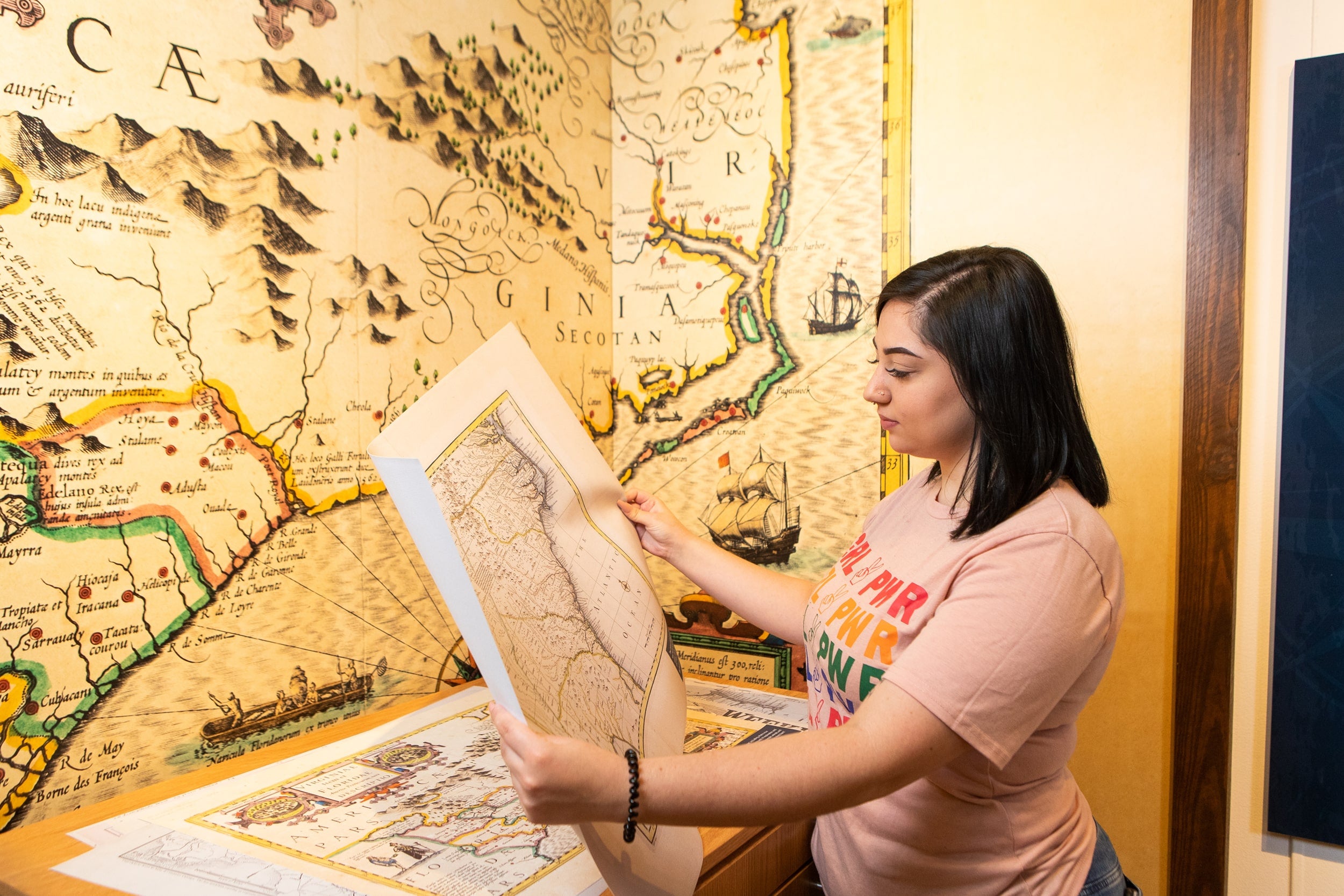Understand the science behind studying the mind and the factors that influence human behavior with a Bachelor of Science (BS) in Psychology from Georgia Southern University.
Locations
- Statesboro Campus (In Person)
- Armstrong Campus (In Person)
- Liberty Campus (In Person)
- Online
Why Major in Psychology at Georgia Southern?
- Participate in faculty-led research or an off-campus internship.
- Study a discipline that leads to dozens of career choices.
- Continue your graduate studies here at Georgia Southern, where you’ll have the opportunity to pursue a master’s degree in experimental psychology, behavior analysis or clinical psychology.
- 124 credit hours to completion.
The best way to unlock the mysteries of the mind and the way we behave is through the use of the scientific method. As a psychology major at Georgia Southern, you’ll have the chance to participate in faculty-led research, off-campus internships and other hands-on experiences that train you directly on what it takes to succeed in the field.
Research is an integral aspect of the program: Every student in PSYC 1101, Introduction to Psychology, either serves as a research participant or completes an alternative project. As a participant, you’ll gain exposure to how research studies are structured and additionally explore the nature of behavior, thoughts and feelings.
Along the way, you’ll acquire the content knowledge, scientific perspective and technical skills that lead the way to careers in behavioral analysis, human services, marketing, criminal justice and other fields, as well as entry into graduate programs.
Ready to Apply?
What Can You Do With a Bachelor’s in Psychology?
Understanding human behavior makes psychology majors an asset to any field. Marketing, business, criminal justice or education — our graduates find work in each. But they also go on to more careers requiring more extensive preparation after pursuing graduate programs in psychology.
Where our graduates work:
- Beacon Health Options
- Children’s Healthcare of Atlanta
- City Year
- Georgia Department of Behavioral Health and Developmental Disabilities
- Marcus Autism Center
- Serenity Behavioral Health Services
- State of Georgia
- The Coca-Cola Co.
- U.S. Department of Veteran Affairs
What our graduates do:
- Career counselor
- Case manager
- Forensic analyst
- Human resources manager
- Law enforcement officer
- Market researcher
- Marketing specialist
- Social worker
- Teacher
- Victim advocate
What You’ll Learn
Courses for the bachelor’s in psychology provide an overview of the discipline and delve into perspectives on culture and individuality. You will compare and apply concepts and theories from abnormal, cognitive, developmental, learning, physiological and social psychology.
Whether you complete your classes in person or online, coursework includes components in research design, application and social responsibility, fundamental knowledge in the biological and evolutionary bases for behavior, mental processes, behavior change, change across the lifespan, person and situation, and experiential learning.
See the CurriculumBuild Your Experience
Learn more about the internships, research and other hands-on opportunities that set Georgia Southern apart.
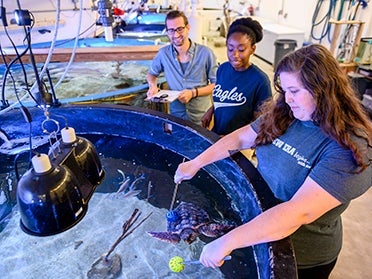
Research
What variables influence jury decisions? How do people interpret and respond to health messages? Our faculty explore questions like these in their labs — and they welcome undergraduate participation in and assistance with their research.
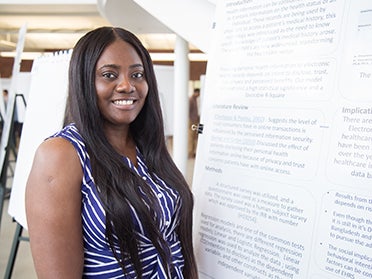
Publication and Presentation Opportunities
Knowledge needs an audience. Share your findings with others by making presentations and submitting your research to undergraduate journals. Our faculty often accompany students to conferences, and you can even become involved in preparing manuscripts for publication.

Internships
Internships turn your classroom lessons into real-world experiences. In recent years, students have applied psychological theories at dozens of sites, including schools, hospitals, behavioral therapy clinics and more.

Behavior Analysis Minor
Human behavior isn’t set in stone. Behavioral analysts understand the factors influencing how people act and guide them toward gradual change. Go to work in education, industrial-organizational psychology or instructional design, or assist individuals living with autism or another disability.
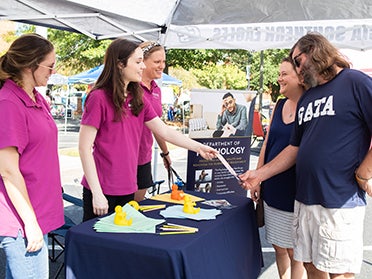
Get Involved
Meet other students interested in the field while building your professional network through student organizations such as the Psych Coalition (Statesboro Campus), Get Psych’d (Armstrong Campus) and Psi Chi, the International Honors Society in Psychology.
Want to Learn More?
Explore essential information about our BS in Psychology program, including application details, accreditation status, and licensing disclosures. Gain insight into the program’s credibility and requirements to help you start your journey toward success with the knowledge you need.
Follow these steps to complete the Georgia Southern application:
- Create an application account.
- Complete our online application using the PIN you received after creating your application account.
- Once complete, pay the $30 application fee or upload a valid fee waiver. Previous Georgia Southern applicants and dual enrollment students do not need to pay the fee.
You can check your application status at My.GeorgiaSouthern.edu/admissions three days after completing your application. This page contains live information about your admission status, including a checklist of missing documents we need to make a decision.
Apply as a First-Year Student Transfer to Georgia SouthernOnline students can earn a BS in Criminal Justice and Criminology while studying anywhere in the world. Even if you have a full-time job and family responsibilities or are serving in the military, Georgia Southern’s convenient and accessible online programs let you work toward a degree on your schedule.
Learn More About Online ProgramsFor All Online Programs
Federal law requires colleges and universities to make certain disclosures to prospective students of these programs. These disclosures include information on the University’s authority to operate outside of Georgia, complaint processes, adverse actions and refunds.
For required disclosures in general with regard to online programs offered by the University, visit the Office of Legal Affairs website.
The mission of the BS degree program in psychology is to provide a course of study that reflects both breadth and depth in the field of psychology. The curriculum is grounded in science and teaches scientific thinking, as well as appropriate content in the specific subdisciplines of the field. In addition to providing quality instruction, the faculty members aim to inspire individuals to be sensitive to cultural issues and individual differences, to facilitate personal growth, and to connect scientific theory to practice.
Learning Outcome #1: Fundamental Knowledge
Students will recognize, compare and apply the core domains of psychology.
Learning Outcome #2: Research Design
Students will recognize, apply and evaluate the fundamental methods and statistics of psychological science.
Learning Outcome #3: Diversity
Students will recognize and respect the complexity of sociocultural and individual differences.
Learning Outcome #4: Professional and Personal Development:
Students will recognize the value of psychology in professional and personal domains.
Faculty Feature
Guilty or innocent? Prof. Amy Hackney asks which factors influence juries as they pass verdicts, working with mock jurors to test variables in their decision-making process. Often, undergraduates serve as research assistants, collecting and entering data, scoring assessments and assisting with literature searches.
Meet Our Faculty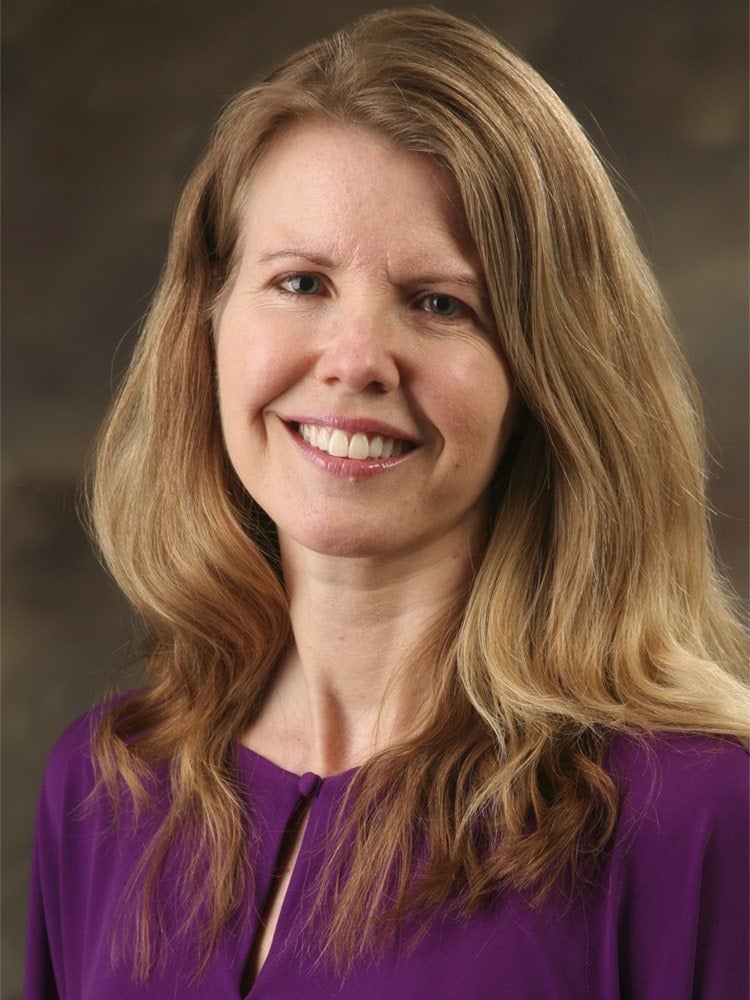
Related Programs
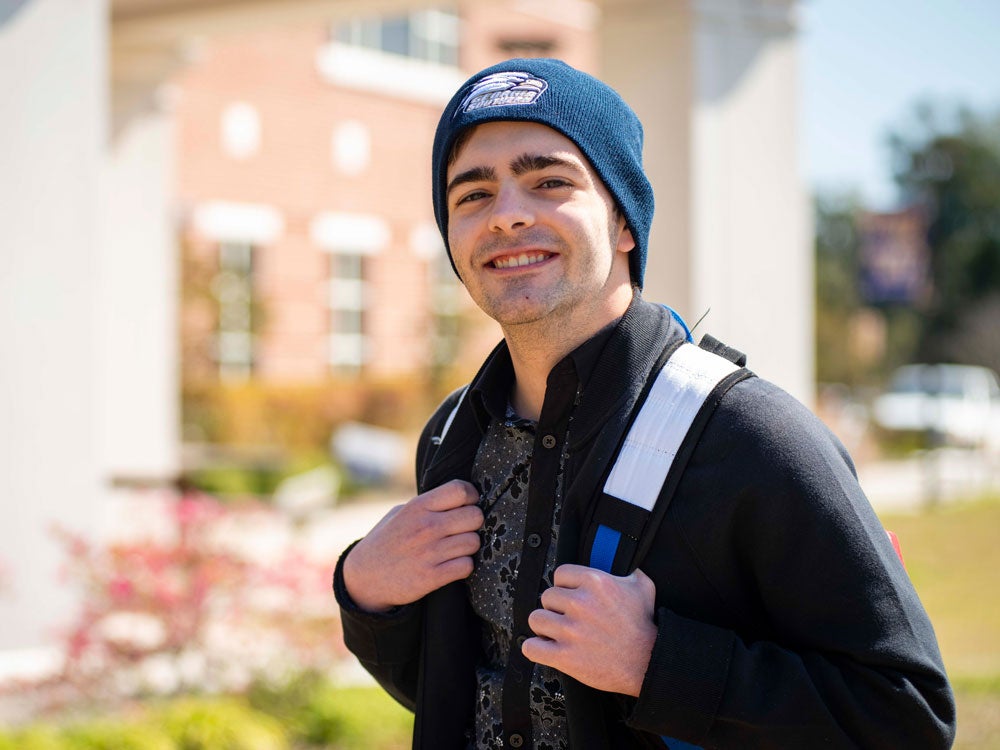
Take the Next Step
People are complex and, at times, confounding — and a BS in Psychology from Georgia Southern helps you understand why we behave the way we do. Contact us to learn more about this program today.
Contact Us
Dr. Ellen Williams
Department of Psychology
PO Box 8041
Statesboro, GA 30460
912-478-5539
ehwilliams@georgiasouthern.edu
You can find your Academic Advisor at the CBSS Advisement Center page.


